Nestled in the heart of the Andes, La Paz is a city that will take your breath away – literally, given its high altitude of 3,650m!
At this incredible elevation, you’ll experience a unique blend of indigenous culture, breathtaking landscapes, and unforgettable adventures. From soaring on cable cars to exploring otherworldly salt flats, there’s no shortage of excitement.
As you wander through the city’s vibrant markets and take in the dramatic mountain views, you’ll discover why La Paz is a gem that deserves a spot on your travel bucket list. Whether you’re an adventure seeker, a culture enthusiast, or a foodie, this city has something special for you.
Discovering the High-Altitude Gem of South America
As you step into La Paz, Bolivia, you’ll be struck by its breathtaking altitude and vibrant culture. Perched high in the Andes, this Bolivian city is known to challenge some travelers with altitude sickness. However, with some preparation and knowledge, you can navigate this high-altitude gem with ease.
La Paz at a Glance
La Paz sits at a breathtaking 3,650 meters above sea level, making it one of the highest capital cities in the world. The city is dramatically set in a bowl-shaped canyon surrounded by the snow-capped Andes mountains, creating a stunning backdrop for your adventures. As you explore the steep hills and winding streets, you’ll discover a city of contrasts where ancient traditions blend seamlessly with modern urban life.
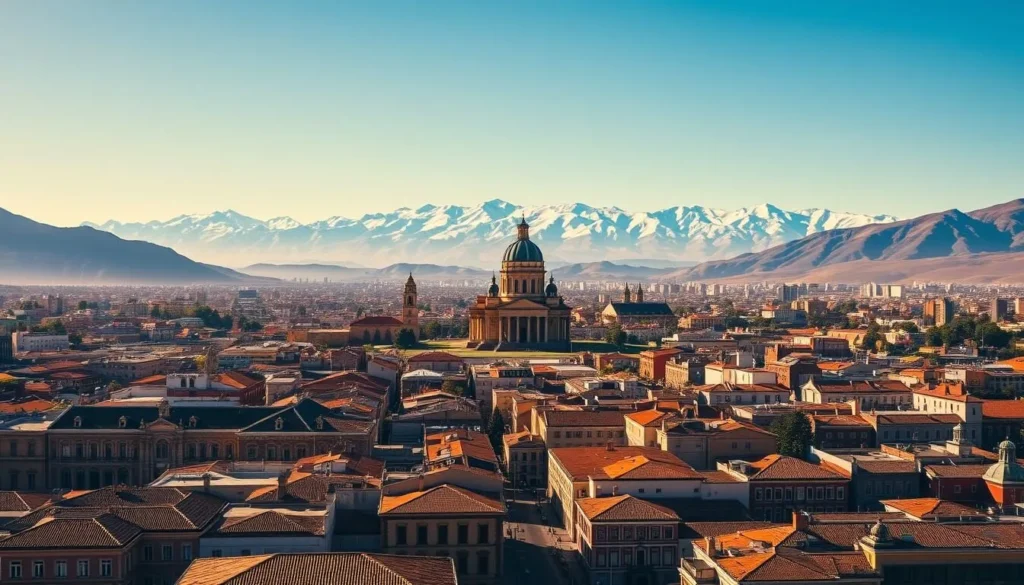
Preparing for the Altitude
When you first arrive at El Alto Airport, you’ll immediately notice the thin air, so it’s crucial to take your first day slowly to acclimatize properly. Coca tea is the local remedy for altitude sickness and is readily available at most hotels and restaurants throughout the city. By taking the time to adjust to the high altitude, you’ll be able to fully appreciate the rich history and culture of La Paz, making the most of your trip to this incredible South America destination.
La Paz offers an incredible value for travelers compared to other countries in South America, with food, accommodation, and activities costing a fraction of what you’d pay elsewhere. As you travel through the city, you’ll experience the unique blend of indigenous Aymara culture and modern urban charm, making La Paz a truly unforgettable destination in the world.
Soaring Above the City on Mi Teleférico
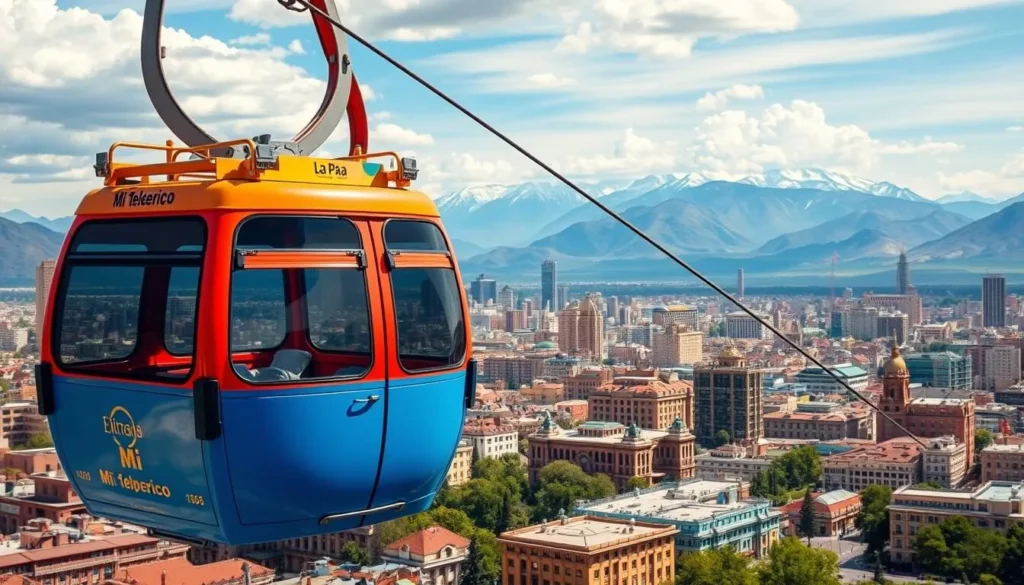
Experience the thrill of soaring above La Paz on Mi Teleférico, the world’s highest and longest urban cable car system. This innovative transportation network not only connects the city of La Paz with the neighboring city of El Alto but also offers breathtaking views of the urban sprawl and the surrounding Andes mountains.
Best Cable Car Routes for Spectacular Views
The Red Line of Mi Teleférico is particularly noteworthy as it provides the most spectacular views of La Paz. As you travel from the northern part of the city all the way up to El Alto, you’ll be treated to panoramic vistas of the city’s terracotta-colored buildings clinging to the steep hillsides. Estación Mirador on the Red Line is a must-visit spot for anyone looking to capture the essence of La Paz from above.
Estación Mirador: The Ultimate Viewpoint
Estación Mirador is renowned for its stunning views of La Paz and the towering Mount Illimani in the distance. As you stand at this vantage point, you’ll be able to appreciate the vastness of the city and the natural beauty that surrounds it. For a truly immersive experience, consider taking a guided La Paz cable car tour to learn about the history and significance of Mi Teleférico while a local expert points out landmarks and neighborhoods you might otherwise miss.
The Yellow Line is another great option, offering spectacular views as you ascend toward El Alto at 4,000 meters elevation. With 10 lines and 31 stations covering over 30 kilometers, Mi Teleférico is an efficient way to navigate the city while avoiding the congested streets below. For just 3 Bolivianos (less than 50 cents), you can ride the cable cars and experience views that would cost much more in other world cities.
Exploring the Mystical Witches Market
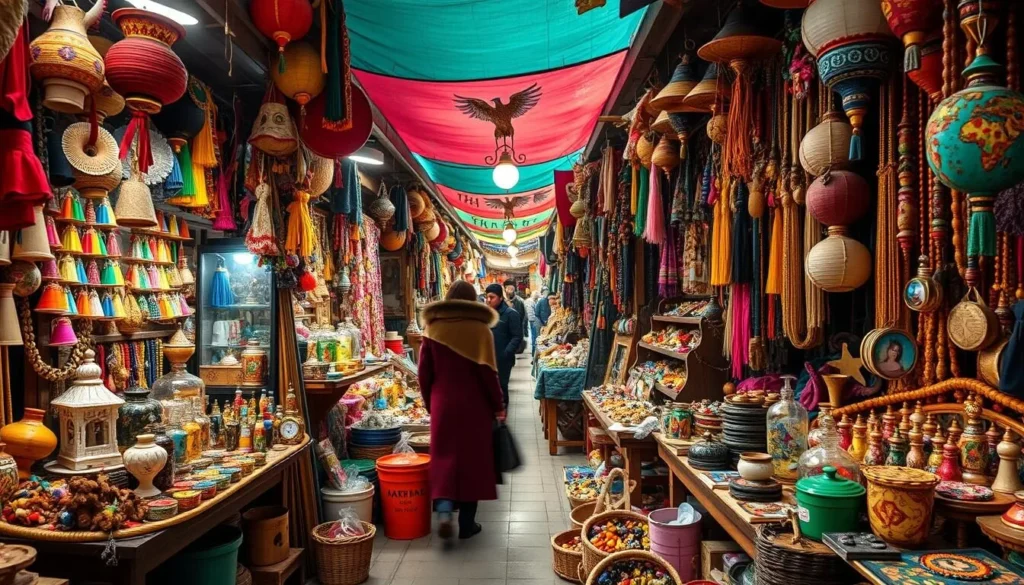
In the heart of La Paz lies the Witches Market, a bustling marketplace filled with an array of unusual and exotic goods. This market, also known as Mercado de las Brujas, is a must-visit destination for anyone looking to experience the rich cultural heritage of Bolivia.
Understanding the Cultural Significance
The Witches Market is located in the San Pedro neighborhood, near the San Francisco Church, and offers a fascinating glimpse into traditional Andean spiritual beliefs and practices. As you walk through the narrow market streets, you’ll encounter vendors selling everything from colorful alpaca textiles to more unusual items like dried llama fetuses, which are traditionally buried under new homes as offerings to Pachamama (Mother Earth).
The market is an important cultural institution where local people still purchase ingredients for traditional ceremonies and rituals that blend indigenous beliefs with Catholic influences. It’s essential to approach the market with respect and understanding of its cultural significance to the Aymara people.
What to Buy (and What to Avoid)
You can purchase harmless souvenirs like woven textiles, handcrafted jewelry, or medicinal herbs. However, it’s crucial to avoid buying items that might be problematic to bring back to your home country. The vendors are generally friendly, but expect some haggling as it’s part of the market culture in Bolivia.
Consider visiting with a knowledgeable guide who can explain the meaning behind the various items and their role in Bolivian spiritual practices. This will enhance your understanding and appreciation of the market’s cultural significance.
Mountain Biking Down Death Road
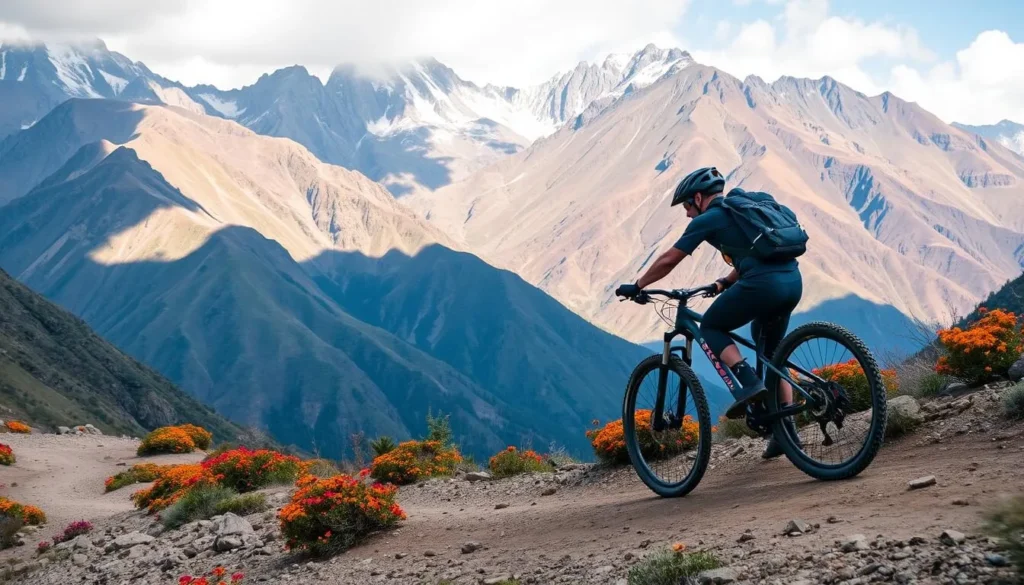
Get ready for an adrenaline rush as you mountain bike down Death Road, one of the most thrilling day trips from La Paz. This 64-kilometer journey takes you along what was once considered the world’s most dangerous road, with narrow gravel paths and sheer drops of up to 600 meters on one side.
Thrills and Scenic Views
As you ride down from 4,650 feet at La Cumbre pass to 1,200 feet in the town of Coroico, you’ll experience the changing landscape of the Bolivian mountain terrain. The ride offers spectacular views as you descend from the high-altitude Andean plateau through cloud forests to the lush subtropical Yungas region.
Safety First
Despite its intimidating reputation, cycling Death Road is actually quite safe when done with a reputable tour company that provides quality equipment and experienced guides. Most tours include transportation from your hotel in the city, all necessary equipment, lunch, and sometimes even swimming pool access at the end of your ride. I highly recommend booking with a well-established company like Gravity Bolivia or Altitude Adventures.
The trip typically takes a full day, starting early in the morning and returning to La Paz in the evening, making it one of the most memorable adventures you’ll have in Bolivia. With the right guide and proper safety measures, you’ll be able to enjoy the thrilling experience without undue worry.
Immersing in Local Culture at La Paz Markets
Immerse yourself in the local culture by visiting La Paz’s bustling markets. La Paz’s vibrant markets are the beating heart of the city, where you can experience authentic local culture and witness daily life unfold around you. The markets offer a unique opportunity to engage with the locals, known as Paceñas, and get a glimpse into their daily lives.
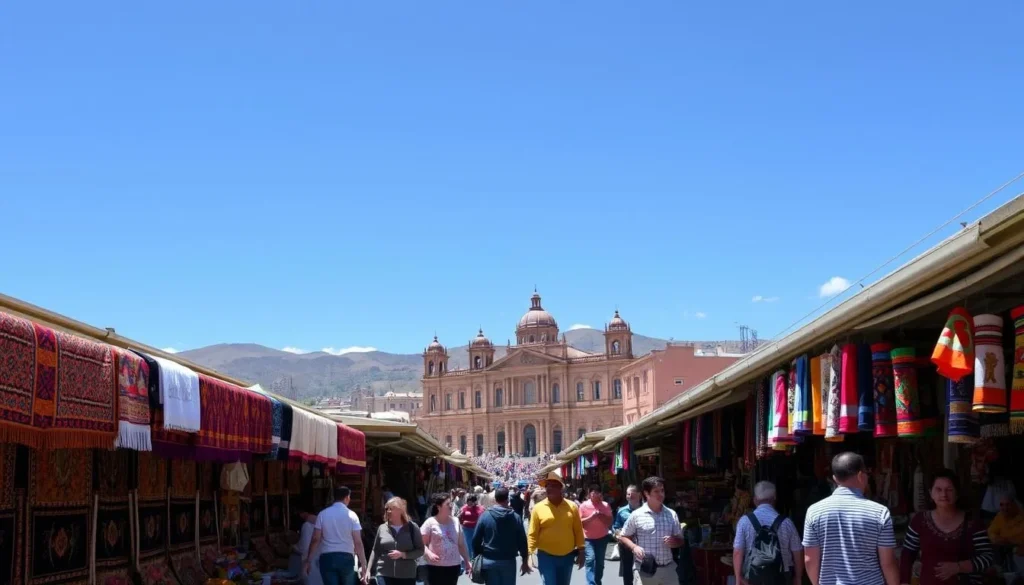
La Paz is home to several markets, each with its own specialty and atmosphere. Let’s take a closer look at three of the most popular markets: Rodriguez Market, Mercado Lanza, and Mercado Camacho.
Rodriguez Market: A Feast for the Senses
Rodriguez Market, located near San Francisco Church, is a feast for the senses. The market is filled with colorful produce stalls offering fresh fruits and vegetables that local chefs and families shop for daily. You can sample local delicacies, such as fresh pears and grapes, and experience the sights and sounds of the market.
Mercado Lanza: The Ultimate Food Experience
Mercado Lanza is a three-story marketplace that is the ultimate destination for foodies. The market offers a wide range of food options, from raw ingredients to prepared meals, making it the perfect place to sample authentic Bolivian cuisine. You can try traditional dishes like salteñas (Bolivian empanadas) and api (a sweet purple corn drink) at affordable prices.
Mercado Camacho: Where Locals Shop
Mercado Camacho is one of the most authentic market experiences in the area, where locals shop for everything from household goods to clothing and food. The market has remained wonderfully authentic, attracting hordes of locals thanks to its competitive pricing. You can find unique souvenirs and experience the local culture firsthand.
| Market | Specialty | Atmosphere |
|---|---|---|
| Rodriguez Market | Fresh produce | Vibrant and colorful |
| Mercado Lanza | Food | Bustling and lively |
| Mercado Camacho | Household goods and clothing | Authentic and local |
Tasting Bolivian Cuisine
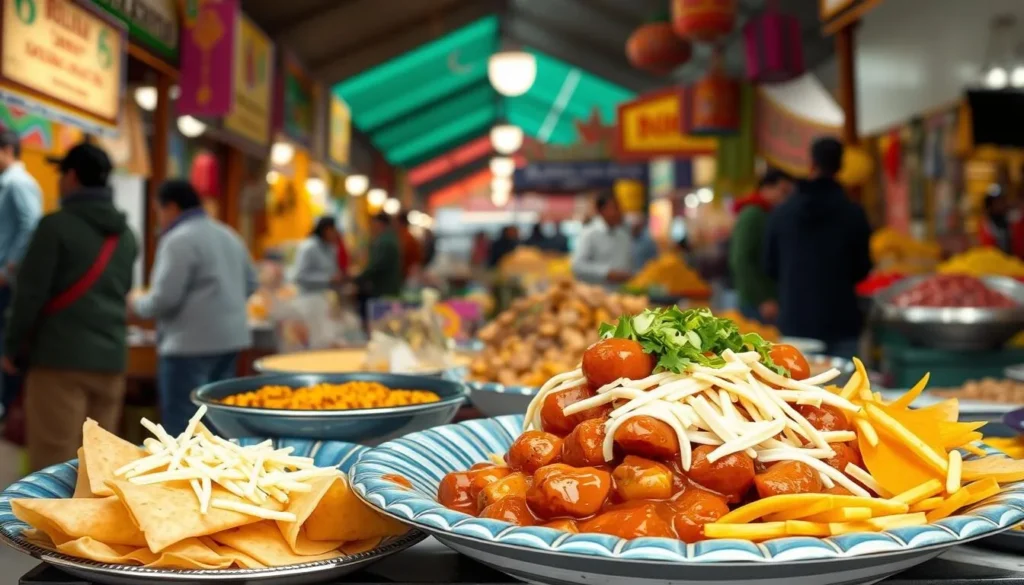
In La Paz, the capital city of Bolivia, you can embark on a gastronomic adventure that showcases the country’s rich cultural heritage. Bolivian cuisine is a delicious blend of indigenous Andean ingredients and Spanish influences, making it a unique experience for visitors.
Must-Try Traditional Dishes
When exploring the local cuisine, there are several dishes you shouldn’t miss. Start with salteñas, savory pastries filled with meat, vegetables, and a slightly sweet, soupy filling. Another must-try is api con pastel, a thick, sweet purple corn drink served hot with a fried bread pastry. For adventurous eaters, anticuchos (grilled beef heart skewers) are a popular street food, especially in the evenings.
Don’t forget to try sopa de maní (peanut soup) and silpancho (a breaded meat dish served with rice, potatoes, and eggs), which are readily available near the Witches Market. These dishes not only offer a taste of Bolivia’s rich culinary heritage but also provide energy for exploring the city.
Best Restaurants in La Paz
For a modern twist on traditional Bolivian cuisine, head to upscale restaurants like Gustu and Popular. These establishments offer innovative dishes made with local ingredients, providing a contemporary culinary experience. If you’re looking for a more authentic experience, visit Mercado Lanza, where you can sample a variety of local fares, including salteñas and api.
To fully immerse yourself in the local food culture, consider taking a La Paz food tour with a local guide. This will give you the opportunity to explore hidden gems and understand the cultural significance of each dish. And don’t forget to sip on coca tea throughout your stay to help combat the effects of high altitude.
Witnessing the Colorful Cholita Wrestling
For a truly immersive experience, attend a Cholita Wrestling match, where indigenous Aymara women showcase their strength and agility. You’ll be treated to a unique blend of traditional culture and modern entertainment, making for an unforgettable day in La Paz.
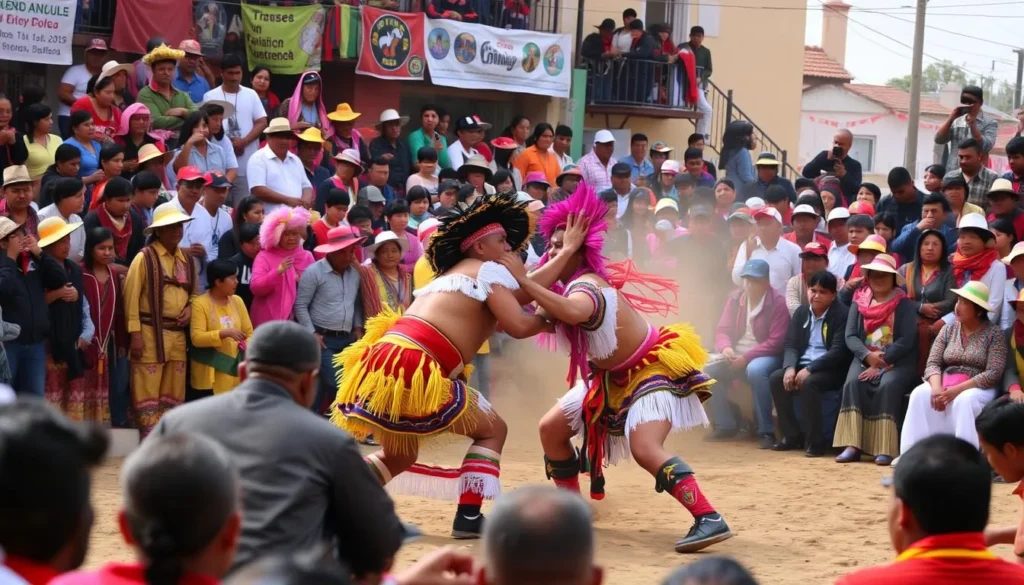
The History and Cultural Significance
Cholita Wrestling originated in the early 2000s as a means to empower Aymaran women affected by domestic violence. The practice has since evolved into a popular cultural phenomenon, drawing both locals and tourists. The wrestlers perform in their traditional attire, complete with colorful multilayered skirts, embroidered shawls, and iconic bowler hats, which have become a symbol of Bolivian indigenous culture.
The history of the bowler hat itself is fascinating, having been brought to Bolivia by British railway workers in the 1920s. It was later adopted by indigenous women as a symbol of status and resilience. Today, Cholita Wrestling not only provides entertainment but also offers economic opportunities for indigenous women, making it a significant cultural and social phenomenon in the world.
Where and When to See a Match
Cholita Wrestling matches typically take place on Thursdays and Sundays in El Alto, with Sunday events being the most popular. The shows feature theatrical elements similar to WWE wrestling, with dramatic storylines, heroes, and villains, and impressive athletic moves that will leave you amazed. To ensure a safe and enjoyable experience, especially at night, it’s recommended to take a tour that includes transportation to and from El Alto.
Attending a match gives you insight into contemporary indigenous culture and how traditional elements are being preserved while adapting to modern times. It’s a unique opportunity to witness the blend of culture, history, and people coming together in this vibrant city.
Admiring Street Art in La Paz
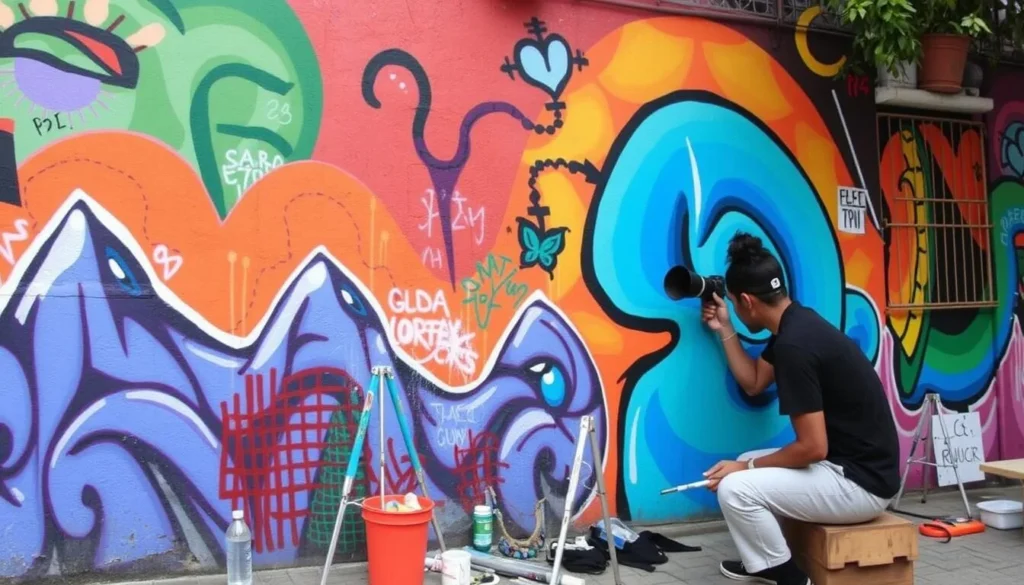
La Paz has emerged as a hotspot for street art, reflecting its unique cultural identity. The city’s vibrant murals are a testament to its rich heritage, blending traditional Bolivian elements with contemporary urban aesthetics.
Chualluma: A Colorful Neighborhood
The Chualluma neighborhood is a standout example of La Paz’s street art scene. Located on the outskirts of the city, this hillside community was transformed into a vibrant open-air gallery under the government-funded program “My Neighborhood, My Home.” Professional urban artists adorned the houses with beautiful murals depicting the community and elements of their Aymaran culture.
Urban Art in Sopocachi
The Sopocachi area, known as La Paz’s bohemian district, is another hotspot for urban art. This neighborhood is home to a concentration of galleries, cafes, and walls adorned with politically charged and socially conscious murals. As you explore the streets near San Pedro and the Witches Market, you’ll discover murals depicting indigenous Cholitas, Andean wildlife, and traditional textiles, creating a visual feast that engages all your senses.
The street art in La Paz often incorporates food imagery and market scenes, reflecting the importance of these elements in daily Bolivian life. Since 2018, the Ñatintas mural-painting festival has brought artists from around the world to create new works throughout the city, constantly refreshing the urban canvas.
La Paz, Bolivia: Best Things to Do – Top Picks for Day Trips
While La Paz has plenty to offer, the real magic happens when you venture out into the surrounding countryside on a day trip or multi-day adventure. The city is a great base for exploring some of Bolivia’s most stunning landscapes.
Uyuni Salt Flats: A Surreal Landscape
The Uyuni Salt Flats, or Salar de Uyuni, is the world’s largest salt flat, spanning over 10,000 square kilometers and sitting at an altitude of 3,656 meters. This surreal landscape seems to extend infinitely, creating a perfect setting for perspective-bending photography.
You can reach Uyuni by taking a one-hour flight from La Paz or an overnight bus trip. Most visitors opt for a guided tour that spans one to three days, depending on how much time you have.
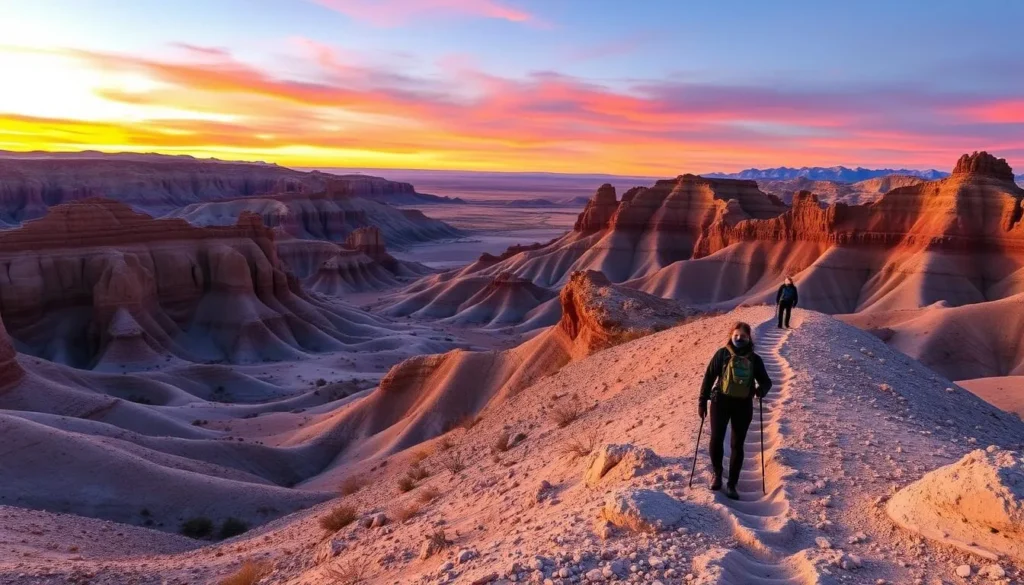
Moon Valley: Otherworldly Formations
Just 10 kilometers from La Paz, Moon Valley, or Valle de la Luna, offers otherworldly landscapes of eroded clay formations that resemble the surface of the moon. This makes it an easy half-day trip when you visit La Paz.
Two hiking trails wind through Moon Valley’s bizarre formations, offering spectacular views of the surrounding mountains and the city in the distance.
Other day trip options from La Paz include Death Road mountain biking tours, which combine adventure with breathtaking scenery as you descend from the Andean highlands to the lush Yungas region. You can also visit Tiwanaku, a UNESCO World Heritage site and pre-Columbian archaeological site, or Lake Titicaca, the world’s highest navigable lake.
Exploring El Alto: The City Above the Clouds
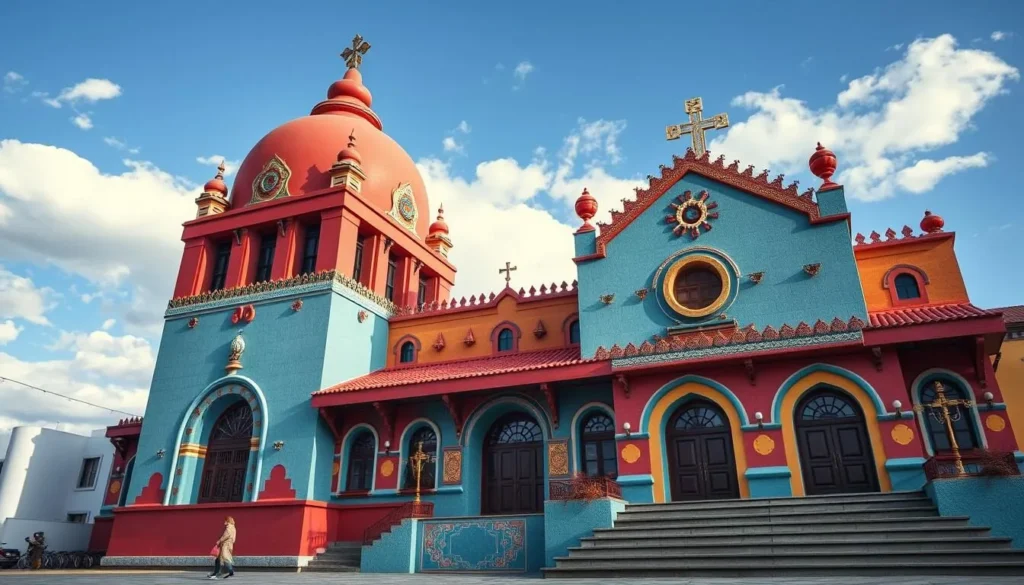
Perched high above La Paz, El Alto is a city that seamlessly blends traditional Aymara heritage with modern entrepreneurship. At an altitude of 4,061 meters, it’s often the first stop for visitors arriving at El Alto International Airport.
The Colorful Cholet Architecture
One of El Alto’s most striking features is its collection of “Cholets” – vibrantly colored, multi-story buildings designed by indigenous architect Freddy Mamani. These architectural marvels combine Aymara symbolism with futuristic elements, reflecting the city’s unique cultural identity.
Feria16 de Julio: One of the World’s Largest Markets
Every Thursday and Sunday, El Alto hosts Feria16 de Julio, one of the world’s largest outdoor markets. With over 200 stalls, you can find everything from car parts to handcrafted furniture, electronics, clothing, and food. This bustling market offers a glimpse into the local economy and culture.
Taking a guided tour of El Alto is highly recommended, allowing you to explore the Cholet buildings and gain insight into their cultural significance from knowledgeable locals. As you wander through the city, you’ll experience the vibrant art and history that make El Alto so unique.
Finding the Best Viewpoints in La Paz
La Paz is a city nestled in a canyon, with buildings climbing up the surrounding hills, creating numerous natural viewpoints that offer spectacular panoramas of the city. The unique topography of La Paz provides photographers and visitors with a unique opportunity to capture breathtaking views.
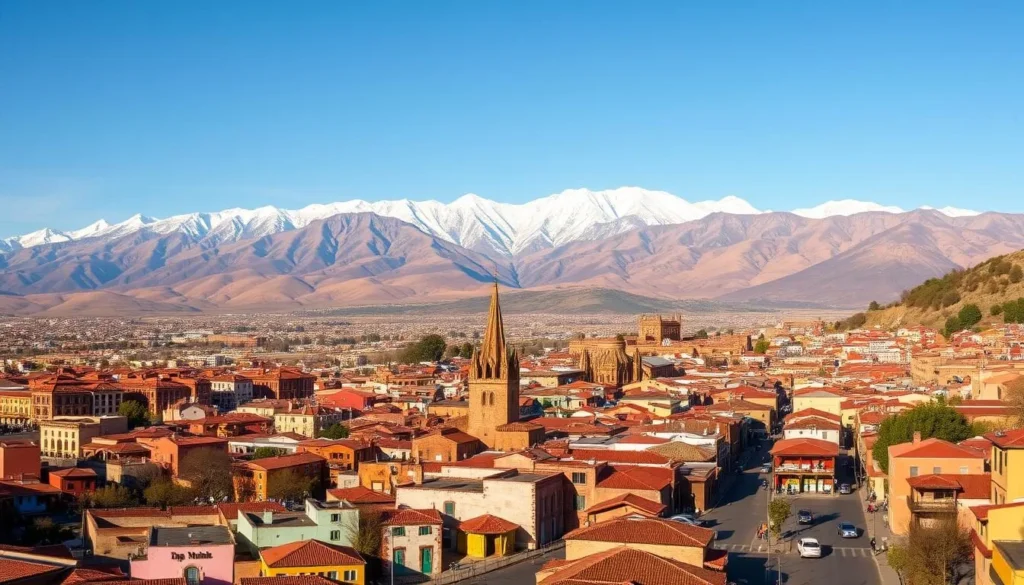
Some of the most popular viewpoints include Killi Killi and Montículo, each offering a distinct perspective on the city’s layout and surrounding mountains.
Killi Killi: Panoramic City Views
Killi Killi viewpoint, located in the Villa Pabón area, provides one of the most comprehensive 360-degree views of La Paz. To reach the Killi Killi viewpoint, you can take a taxi or bus to the base of the Killi Killi hill and then climb the steep stairs to the top. From here, you can see the majestic Illimani and Huayna Potosí mountains, as well as the La Paz urban sprawl.
Montículo Viewpoint in Sopocachi
The Montículo Viewpoint in the trendy Sopocachi neighborhood is easily accessible via the yellow cable car line. You can take a cable car ride to the Sopocachi station or hike up the hill from Plaza Abaroa. The area around the viewpoint is a popular spot for restaurants and bars, offering a relaxed viewing experience. From here, you can see Illimani Mountain and the city of La Paz.
For the best views, consider visiting these viewpoints during the early morning or late afternoon when the lighting is optimal. The Mi Teleférico cable car system also offers spectacular moving viewpoints, particularly on the red line as it climbs toward El Alto.
- Visit Killi Killi and Montículo viewpoints for panoramic views of La Paz.
- Take a cable car ride for a unique perspective on the city.
- Enjoy the surrounding mountains and cityscape from these elevated spots.
Playing Golf at the Highest Course in South America
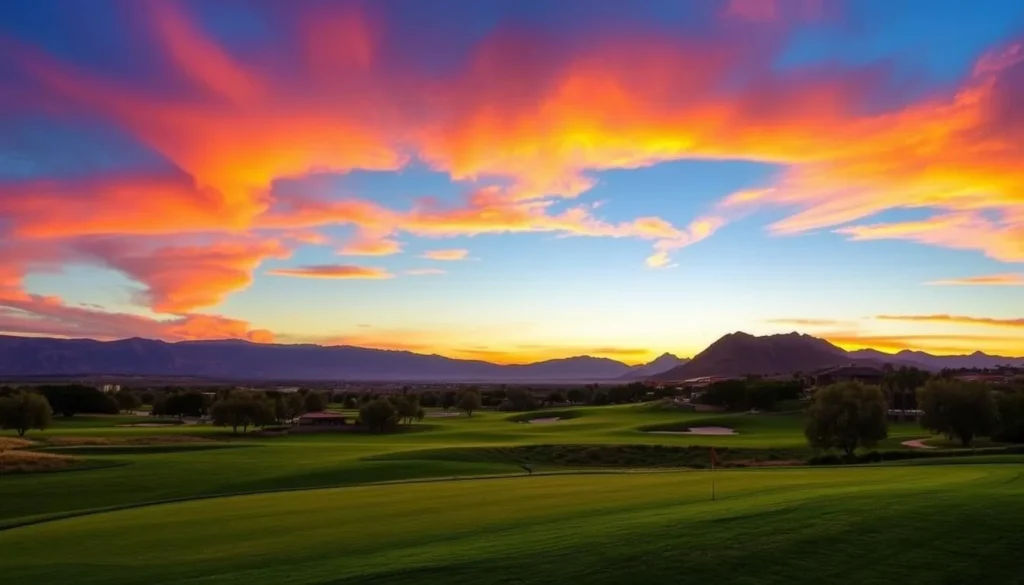
At 11,036 feet, La Paz Golf Club offers an unparalleled golfing adventure in the heart of the Andes. As the highest golf course in South America, it provides a unique experience for golf enthusiasts. The course is open to tourists, with weekday visitor fees of $60, and club rentals are available for $15.
The golf club is easily accessible; you can take the cable car down to Zona Sur and then a short 15-minute taxi ride to the course entrance in the Mallasilla area. Once you’re on the course, you’ll be treated to breathtaking views of the surrounding Andean landscape and might even spot native wildlife like viscachas and Royal Andean Eagles soaring overhead.
Golfing at this altitude presents an interesting challenge due to the thinner air, which allows your ball to fly 25-30% farther. This unique condition, combined with the stunning mountain scenery, makes for a memorable round. After the adrenaline rush of activities like mountain biking down Death Road, the golf course offers a peaceful respite in beautifully maintained surroundings.
Even if you’re not a golfer, visiting the clubhouse for lunch and taking in the spectacular views from the terrace can be a great way to enjoy your day. With its feet firmly planted at 11,036 feet above sea level, La Paz Golf Club is a must-visit destination for any golf fan traveling to La Paz.
Exploring La Paz’s Hip Neighborhoods
As you explore La Paz, you’ll discover distinct neighborhoods that showcase the city’s diverse character. From bohemian artist havens to upscale residential districts, each area offers a unique experience.
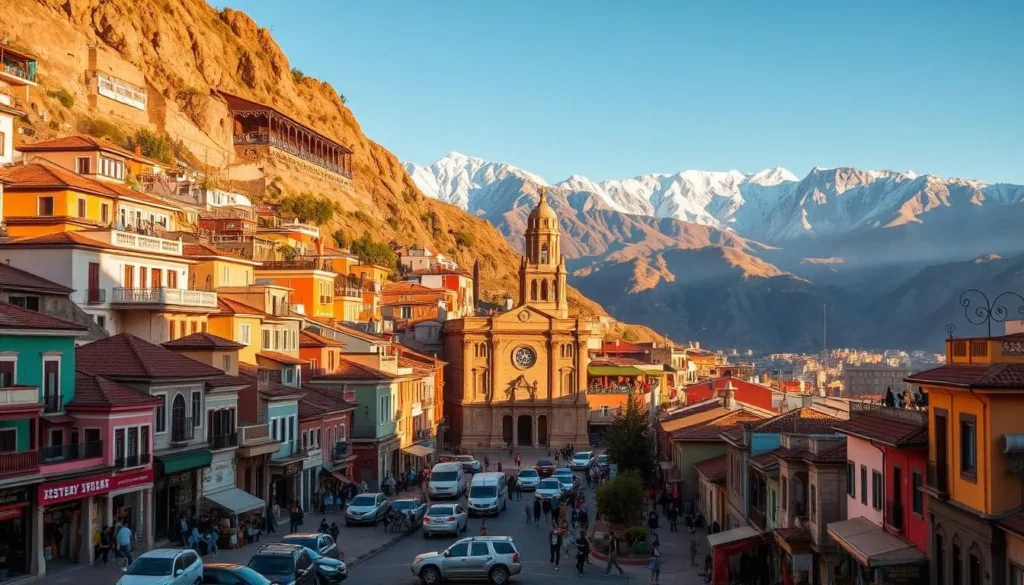
One of the city’s most vibrant neighborhoods is Sopocachi, known for its bohemian vibe and artistic flair. This neighborhood is adjacent to the historical center of La Paz and combines traditional and modern buildings, adorned with colorful murals. You’ll find colorful street art, hip cafés serving artisanal bread and pastries, and a lively nightlife scene that attracts creative people from across La Paz.
Sopocachi: The Bohemian District
Sopocachi is home to numerous art galleries, independent boutiques, and some of the city’s best restaurants, making it an ideal area to spend a day exploring on foot. The neighborhood was once home to the famous Bolivian painter Walter Solon Romero, whose influence can still be felt in the area’s artistic atmosphere.
Zona Sur: Upscale La Paz
In contrast, Zona Sur, particularly the Calacoto and San Miguel areas, represents upscale La Paz, with tree-lined street avenues, luxury boutiques, and high-end restaurants catering to the city’s affluent residents. You can enjoy diverse food options, from traditional Bolivian eateries to international cuisine and trendy fusion restaurants, near San Pedro and San Francisco Church.
- Explore local markets in both neighborhoods, offering a range of authentic and upscale shopping experiences.
- Enjoy the warmer climate in Zona Sur, which sits about 1,000 feet lower in elevation than the rest of the city.
Practical Tips for Visiting La Paz
When planning a trip to La Paz, Bolivia, there are several practical tips to keep in mind to ensure a smooth and enjoyable journey. La Paz is a city that requires some preparation to navigate its unique challenges, including its high altitude and complex transportation system.
Getting Around the City
The Mi Teleférico cable car system is the most efficient and scenic way to get around La Paz, offering spectacular views of the city while avoiding congested streets below. For shorter trips within neighborhoods, radio taxis are a safer option than unmarked taxis, especially at night.
![]()
Best Time to Visit
The best time to visit La Paz is during the dry season, from May to October, when days are sunny with blue skies. However, nights can be quite cold due to the altitude, so it’s essential to pack layers.
Safety Tips
La Paz is generally safe for tourists in main areas, but it’s crucial to be cautious in crowded markets and avoid displaying valuable items. When planning day trips or tours outside the city, book with reputable companies and check reviews, particularly for adventure activities like Death Road biking.
To adjust to the high altitude, give yourself at least one full day to acclimatize and drink plenty of coca tea, a local remedy that helps alleviate altitude sickness symptoms.
Where to Stay in La Paz
Your stay in La Paz can be significantly impacted by the neighborhood and hotel you choose. La Paz offers a variety of accommodations to suit different budgets and preferences.
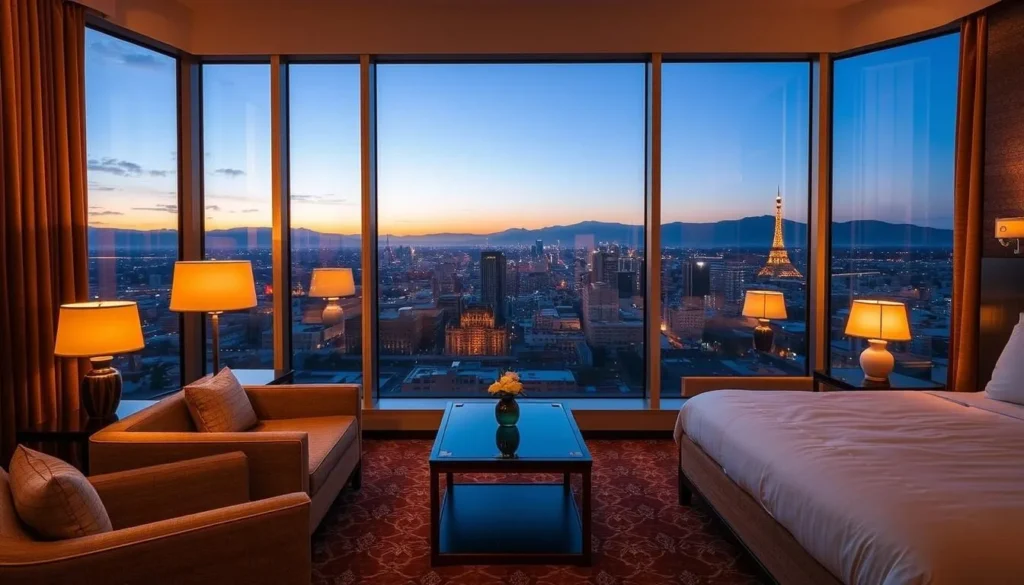
Luxury Accommodations
For a luxurious experience, consider Atix Hotel in Zona Sur, which offers a five-star experience with locally sourced materials and panoramic city views. The Stannum Boutique Hotel is another upscale option, featuring floor-to-ceiling windows that showcase spectacular views of the surrounding mountains and cable cars.
Mid-Range Options
Mid-range accommodations like Hotel Rosario in the historic center offer excellent value with colonial charm and comfortable rooms. Hotel Calacoto in the safe Calacoto neighborhood provides a comfortable stay with a garden area and proximity to a cable car station.
Budget-Friendly Hostels
Budget travelers can find numerous hostels in the Sopocachi area, such as Wild Rover and Loki, which offer social atmospheres and organized activities. Casa Fusion Hotel Boutique is another budget-friendly option, offering clean and comfortable rooms near the Sopocachi cable car station.
Conclusion: Why La Paz Should Be on Your Travel Bucket List
La Paz offers an unforgettable blend of culture, adventure, and natural beauty. As you’ve explored throughout this article, this vibrant city is a treasure trove of experiences, from its colorful markets and rich history to thrilling activities like mountain biking down Death Road.
One of the most compelling reasons to visit La Paz is its affordability. Compared to other major cities in South America, La Paz offers a budget-friendly experience without compromising on the quality of food, travel, and activities. Whether you’re looking to immerse yourself in local culture or seek adventure, La Paz has something for everyone.
In just a few days, you can adjust to the altitude and start exploring the city’s hidden gems, from street art to local markets. With its unique blend of traditional and modern attractions, La Paz is a destination that will leave you with unforgettable memories. So, pack your bags and get ready to experience the best of Bolivia in this incredible city.
The above is subject to change.
Check back often to TRAVEL.COM for the latest travel tips and deals.
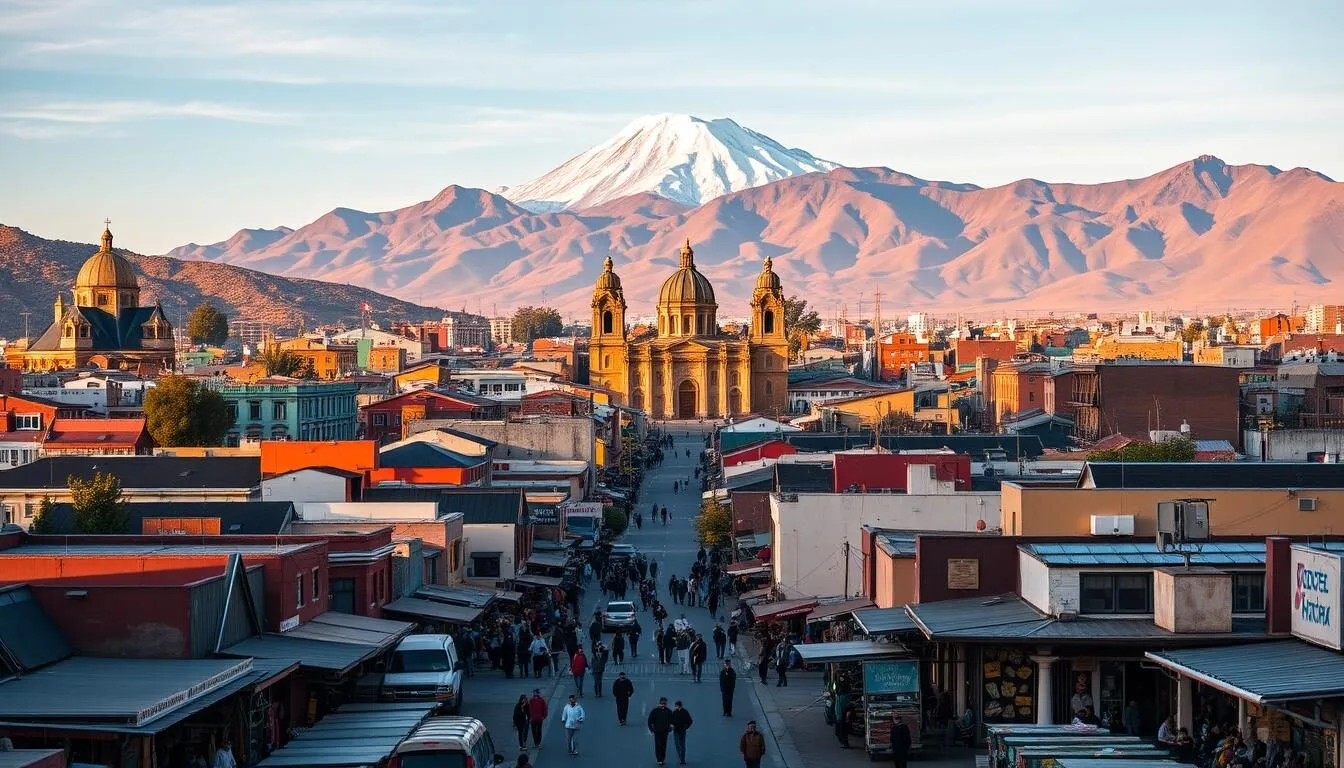
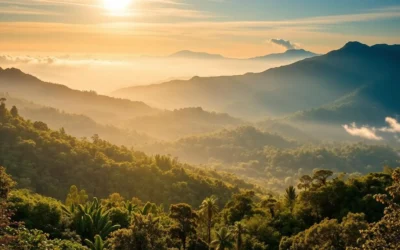
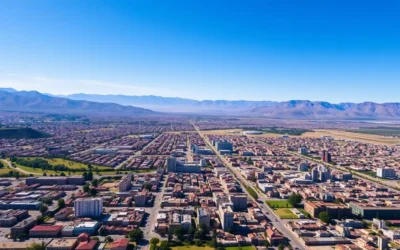
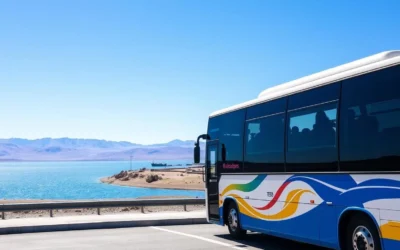
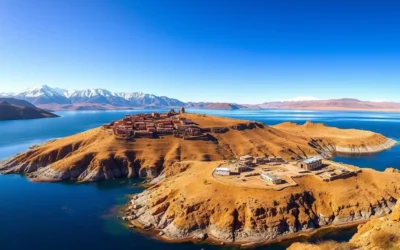

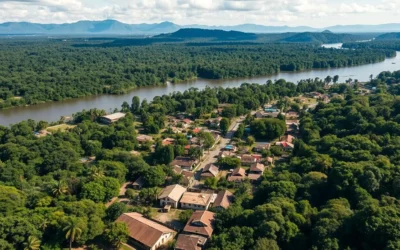
0 Comments